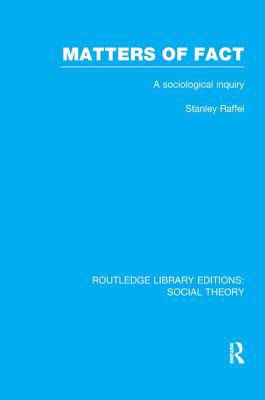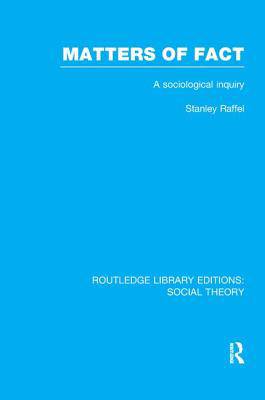
- Retrait gratuit dans votre magasin Club
- 7.000.000 titres dans notre catalogue
- Payer en toute sécurité
- Toujours un magasin près de chez vous
- Retrait gratuit dans votre magasin Club
- 7.000.0000 titres dans notre catalogue
- Payer en toute sécurité
- Toujours un magasin près de chez vous
Description
Facts may seem to be independent, but in this study Stanley Raffle looks at them as expressions of commitment. Medical records, he believes, furnish a principal example of the actively oriented character of the factual commitment, and he draws on his experience of research among the records of a large modern hospital to demonstrate this. He describes how records are produced and reorganized as records, and discusses the grounds which provide for all the features of the records. He looks at the act of 'observation' in many apparently and concretely different places, and analyses the activity of noticing, viewing, recording a spectacle, where what is observed supposedly remains untouched by the observing. Dr Raffel goes on to show that observation, events, records and criteria of assessment such as reliability and completeness lose their status as unexplicated verities and become, instead, decisive and consequential courses of action. He points out, too, that the Socratic dialogues exemplify an orientation to commitment that even medical records, paradoxically, require if they are to be the matters of fact that they are.
Spécifications
Parties prenantes
- Auteur(s) :
- Editeur:
Contenu
- Nombre de pages :
- 134
- Langue:
- Anglais
- Collection :
Caractéristiques
- EAN:
- 9781138995710
- Date de parution :
- 27-01-17
- Format:
- Livre broché
- Format numérique:
- Trade paperback (VS)
- Dimensions :
- 156 mm x 233 mm
- Poids :
- 452 g

Les avis
Nous publions uniquement les avis qui respectent les conditions requises. Consultez nos conditions pour les avis.






